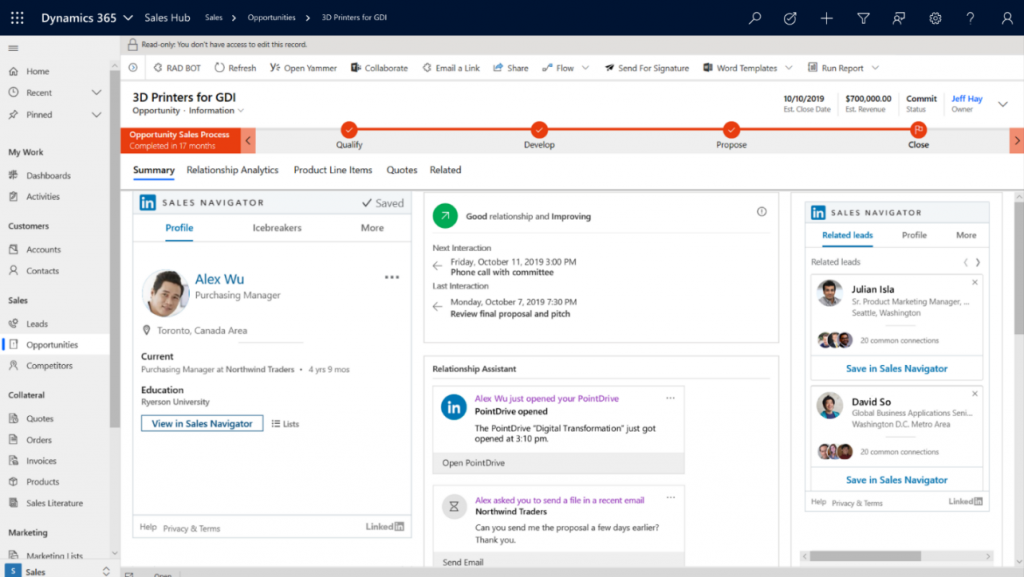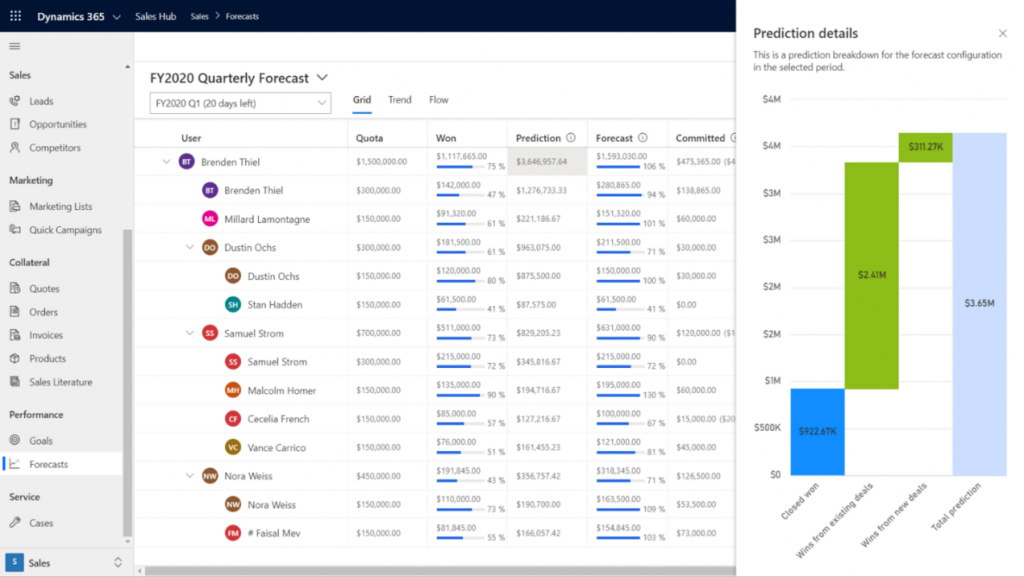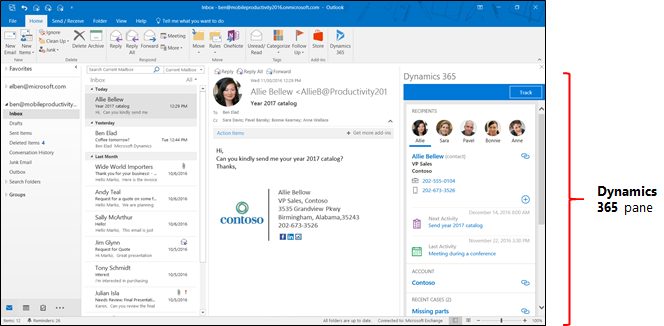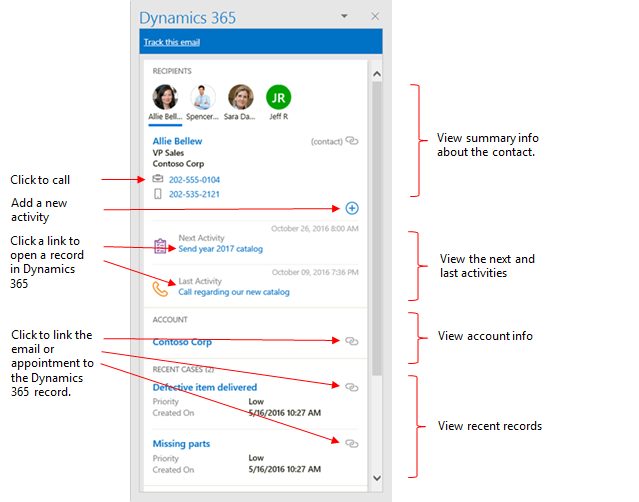At Calsoft Systems, we specialize in guiding businesses through the seamless implementation of Microsoft Dynamics 365 for Sales (CRM), placing a strong emphasis on enhancing operational efficiency through advanced sales force automation capabilities. Our tailored solutions empower organizations to not only manage customer information effectively but also elevate customer satisfaction, leading to a substantial boost in overall sales and profits.
In this revised and updated article, we will explore Microsoft Dynamics 365 for Sales, which provides the core function of Microsoft Dynamics 365’s SFA (Sales Force Automation).
Is SFA (Sales Force Automation) really useful?
Evaluating the utility of Sales Force Automation (SFA) prompts a nuanced exploration, despite the recognition of the benefits of CRM systems. However, it is not uncommon for hesitations to arise across various departments, accompanied by concerns such as perceiving it as an “additional burden,” grappling with the “inability to effectively use data,” and a sentiment of dealing with “too many applications.” These reservations, if not addressed, can impede the optimal utilization of the system post-implementation.
As business operations vary from company to company, being able to identify detailed nuances is far more important than just implementing a system. Some challenges include:
The data not accumulating
One common challenge faced by businesses is the accumulation of data within CRM systems. Although data analysis allows new awareness for strengthening the sales force, it takes time to maintain the data, and the salesperson may end up not entering anything. This creates a vicious cycle where data doesn’t get accumulated and customer analysis cannot be performed.
Microsoft Dynamics 365 addresses this by providing intuitive features that streamline data entry, ensuring that valuable information is effortlessly captured. With automated data analysis, sales teams gain new insights, empowering them to strengthen their approach.
Interference with normal sales activities
Among the complicated tasks that salespeople are expected to conduct every day, spending excessive time in updating data can become a distraction from devoting time to the customers.
Dynamics 365 for Sales minimizes disruptions to daily sales tasks. The platform’s Sales Force Automation (SFA) capabilities automate routine processes, allowing salespeople to focus on what matters most—building meaningful relationships with customers.
The work becoming too personalized
For various reasons like job security, business processes can easily become a black box, relying too much on the experience and intuition of a specific salesperson. This can become a hindrance when trying to standardize a system.
To avoid the pitfalls of over-personalization, Dynamics 365 offers a balance between personalized sales approaches and standardized processes. By providing a structured framework, businesses can benefit from the expertise of individual salespeople while maintaining consistency across the entire sales process.
Fully utilizing SFA (Sales Force Automation)
Beyond just acquiring new customers, Dynamics 365 for Sales equips you to foster lasting relationships, unlock hidden revenue potential, and transform your sales operations.
More than just a CRM, Dynamics 365 is a powerful sales force automation (SFA) solution that provides you with:
Consistent customer service throughout the company
On Dynamics 365, real-time information of customers such as current business status, past purchase history, contract details, and support history can be identified and shared throughout the company. This ensures a consistently high level of customer service throughout the company, fostering loyalty and satisfaction.

Improve negotiation process and sales
By defining indicators, phases, and conditions in managing business negotiation processes. Dynamics 365 eliminates subjective interpretations. This results in objective progress reports and the identification of bottlenecks. Salespeople receive targeted coaching, enabling accurate predictive management and ultimately leading to improved sales outcomes.

Efficient information sharing and productive sales activities
Integration with Microsoft Outlook enhances information sharing in real time. Sales teams can seamlessly exchange emails, schedules, tasks, and contacts, eliminating the need for manual reporting. This integration optimizes resource allocation, allowing sales professionals to engage in more meaningful and productive activities.


AI-powered insights
Dynamics 365 Sales goes beyond basic CRM functionality by leveraging the power of AI to provide invaluable insights that can transform your sales strategy. Imagine having access to real-time customer sentiment analysis, predictive lead scoring, and automated deal recommendations. This is the power of AI in Dynamics 365 Sales. With these insights, you can:
- Identify promising leads: AI helps you prioritize leads with higher conversion potential, ensuring your sales team focuses on the most profitable opportunities.
- Close deals faster: Predictive deal insights and next-best-action recommendations guide your sales team towards successful deal closures, shortening sales cycles and accelerating revenue.
- Personalize customer interactions: AI analyzes customer data and past interactions to provide personalized recommendations for engagement, ensuring you deliver relevant and impactful experiences.
- Optimize your sales process: AI helps you identify bottlenecks and inefficiencies in your sales process, enabling you to make data-driven decisions and optimize workflows for maximum efficiency.
To fully utilize SFA (sales force automation) in Dynamics 365 Sales, embrace its AI-powered insights, automate repetitive tasks, and foster a data driven culture that empowers your team to focus on building relationships and closing deals.
About Calsoft
Calsoft Systems is a leading IT solutions provider known for delivering innovative and tailored services to meet diverse business needs. With a focus on technology excellence, Calsoft Systems empowers organizations to optimize their operations and enhance overall efficiency. From custom software development to cloud solutions and IT consulting, we offer a comprehensive suite of services. Contact us today and take your sales game to the next level!
Ready to unleash the power of Dynamics 365 SFA in your organization?
More to read:
The Role of Microsoft D365 in Digital Transformation
Comparing Microsoft Dynamics 365 CRM and Salesforce
Top Dynamics 365 Integration Platforms

